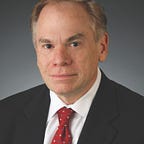To begin with the obvious, because of the pandemic, the Democratic National Convention (as will be true for the Republican National Convention) will not be very much of a “convention” since it will occur remotely. Thus, there will be little, if any, group enthusiasm and rallying of party supporters and loyalists in the final push toward the election. Since lack of enthusiasm about Democratic Candidate Joe Biden is one of the perceived weaknesses of his campaign, this is a substantial negative. On the other hand, the celebratory atmosphere of a political convention seems inappropriate during a global pandemic in which 170,000 fellow Americans have died. On the positive, the convention should yield much more party unity than there was in 2016 between Candidates Hillary Clinton and Bernie Sanders, since the convention will almost exclusively be a collection of carefully orchestrated speeches, and presumably a more focused theme around defeating President Trump.
There are two things to watch for during the convention: how well the Democrats focus what they should focus on, and how successful President Trump is with his attempts to distract with his own events and tweetstorm attacks.
What should the Democrats focus on? The obvious answer is winning the election and to win the election, the Democrats must win in the battleground states (see my book for more information), and thus, the convention must focus on those states. But will it?
If the convention were in person, it would have focused on at least one of those states, Wisconsin, since the convention would have been there, but it’s not. Unfortunately, the speaker line-up doesn’t have that “battleground state” focus, either. Michigan Governor Gretchen Whitmer and former Congresswoman Gabby Giffords appear to be the only exceptions, other than the typical “home of the convention” speakers. One of those, local Congresswoman Gwen Moore, is controversial because of her positions on Israel. The rest of the speakers are from states not reasonably in contention in the election, including two Delaware politicians, presumably because they are from Joe Biden’s home state.
The second focus should be on independent or moderate voters. But, again, looking at the speaker list, this appears to be another missed opportunity. For sure, having both former President Obama and former First Lady Michelle Obama is a substantial, notable exception, but it may not be able to overcome a line-up of polarizing speakers, including both “Chuck and Nancy” (Senator Chuck Schumer and Speaker Nancy Pelosi), and very liberal speakers, including Bernie Sanders, Elizabeth Warren and Alexandria Ocasio-Cortez. In response, Trump and the Republicans will claim that Biden will take the country far left. Both Clintons will speak as well. Their current appeal to independents or moderates is negligible or non-existent, and both will be easy fodder for Trump and the Republicans.
The third focus has to be Biden’s vision for our country. While the “defeat Trump” message has strong appeal, particularly considering his continued unwillingness or inability to control the pandemic, the Democrats must also show why we should vote for Biden, and not just against Trump. That message needs to be less about specific plans — a Biden strength based on recent voter surveys — but on creating a compelling vision of America under Biden’s leadership.
On the other side, Trump is holding his own campaign events — including one in Biden’s hometown of Scranton, PA — to distract from any positive momentum the convention may create. We can also expect multiple Trump tweetstorms during the convention, especially focused on his favorite targets and the derogatory nicknames he has given or will give those targets, likely while he disclaims watching the convention. The Democrats’ best approach to the Trump “distract and attack” counterstrategy is for Biden’s surrogates to use the Reagan approach (“there he goes again”) to dismiss them as the sideshows they are.
Tomorrow: Democratic National Convention Day 1 Highlights
